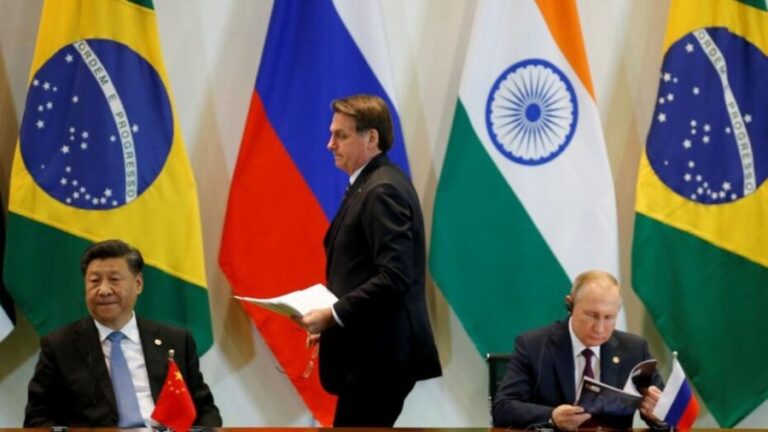No Breaks in the Games around Taiwan
The title of any text always and inevitably reflects its main content in the “by and large” format. In doing so, important “details” are labeled as they are written.
In the global political game, “by and large” the branch that develops “around” Taiwan is gaining importance. The leading players here are China, the United States, and Japan. Although, some others might be considered “coming up,” such as India and major European powers. However, not quite “large” European nations, such as the Czech Republic, are also trying to poke their noses into a severe problem. And its source is on the other side of the globe.
But present-day Taiwan itself, being the object of the game, has a pretty different subjectivity in it. It concerns a “specific” from the standpoint of international law player with a population of 24 million people, having one of the most advanced economies taking the 20-21st place in the world by total volume, and located on an island of the same name, two hundred kilometers from the coast of China.
Taiwan’s “specificity” in the international arena reflects that since 1971, Taiwan has not been a United Nations member. Being one of the five permanent members of the Security Council, Beijing views Taiwan as a “rebellious province” that must be returned to its mother country one way or another.
As for the position of the primary geopolitical opponent in this matter, Washington, for now, officially and externally retains the form acquired in 1979 to establish diplomatic relations with Beijing. The most critical condition for the fulfillment of this act, which Washington had to accept, was the recognition of Beijing as being “the sole representative of China” in the international arena. However, Taiwan’s status was not specified in the bilateral documents.
Since China’s emergence as the main geopolitical opponent of the United States, somewhere around the turn of zero and last decade, the pro-Taiwan lobby in the American establishment (especially in Congress) has become increasingly important. The latter has more or less always and openly advocated abandoning the “strategic ambiguity” of the US position on the Taiwan issue. Last fall, prominent American experts Richard Haas and Jeffry D. Sachs suggested moving to a position of “strategic clarity,” which established normal inter-state relations with Taiwan.
Although there has long been a creeping process in this aspect of US policy toward China toward the above “strategic clarity,” still, Washington has always understood the disastrous consequences of its final documented confirmation for the entire system of relations with Beijing.
In addition to the fully defined long-term prospect of a geopolitical confrontation between the United States and China, the two leading world powers are substantially linked. It is enough to refer to the substantial bilateral trade volume (about $600 billion annually).
There are also severe problems in this area of bilateral relations. Still, they are the subject of negotiations, which led in January 2020 to the conclusion of the so-called “Phase One Agreement.” Despite the parallel process of aggravation in the political sphere of relations (which continued under the new administration), no signals about the possibility of abandoning the aforementioned “Agreement” have ever been visible. Moreover, there is an active probing of the possibility of resuming the negotiation process at the level of the heads of trade and economic blocs of both countries.
Let us recall the rather obvious fact that there are factions of different (including outwardly) political orientations in the American political establishment. The “pro-Taiwan lobby” mentioned above is an organic part of the faction that is determined to fight China (and Russia) uncompromisingly. It advocates a sharp acceleration and logical completion of the very “creeping process” of making relations with Taiwan a “normal interstate.”
Which, again, would have dealt an irreparable blow to the entire complex of US-Chinese relations and which the US government leadership has so far sought to avoid. However, this group has kept operating the conveyor belt producing all kinds of “products” damaging from the standpoint of solving the Taiwan problem.
Of those that have emerged in the last few weeks, the noisiest repercussions were generated by the June 6 appearance of three US senators in Taiwan. The two of them flew to the island, boarding a C-17 military transport plane accompanied with a cargo of 700,000 doses of coronavirus vaccine provided free of charge by the US government to Taiwan. Taiwan has been affected by the pandemic in recent months.
Due to take place in June, the event was part of a broader effort to provide 80 million doses of US vaccine to the hardest-hit countries free of charge.
All in all, a good cause and its “Taiwanese” component would not have sparked an adverse reaction by China if it had not been accompanied by some annoying moments. First of all, the pilots of the plane would have been perfectly capable of delivering the much-needed cargo to Taiwan without the accompaniment of the “high command.” The high command that was readily accepted by Taiwanese President Tsai Ing-wen, which gave the whole affair the character of a visit (even though under plausible pretext) by representatives of the US legislature to the territory of the “rebellious province.” It was done without prior approval of the capital of the Greater China.
In addition, the cargo was delivered onboard an aircraft not designed for airstrike operations. Even so, it belonged to the US Air Force. And it was the first time since 1979 that an aircraft belonging to the US Armed Forces had appeared on the island.
It should be noted that a variety of military equipment is more or less purchased regularly and in large quantities by Taiwan from the same United States. But for its own armed forces. However, in this case, the author is referring to the precedent arrival on the island of a certain military apparatus belonging to a key geopolitical opponent of the Mainland. And the increasing presence of US warships and aircraft around Taiwan is one of the sources of growing tension around the island. Not without reason, this time, the adverse reaction to the said action, in general, followed from the Ministry of National Defense of the People’s Republic of China.
Thirdly, the Tsai Ing-wen government refuses to accept similar aid from China, which, in particular, becomes a reason for the aggravation of the inter-party struggle in Taiwan. Such a demonstrative refusal to accept a helping hand does not, of course, contribute to reducing the level of tension in the Taiwan Strait, so urgently required today.
One gets the impression that all aspects of the operation to bring the US vaccine to the island were worked out in advance, thoroughly and comprehensively, with the primary goal being in the realm of politics. This action perfectly fits the “creeping process” of establishing the format of “normal inter-state” relations between the US and Taiwan. Several other factors testify to its development. There have been reports, for example, of another legislative initiative to raise the status of Taiwanese representation in the United States.
The swordplay that began back in Anchorage continued, but this time over the phone between Yang Jiechi and Antony Blinken. Its subject matter was the same Taiwan problem and the topic of the origin of the coronavirus epidemic. In propaganda attacks on China, the latter will replace the Uyghur genocide theme, from which, it seems, Washington has failed to draw any noticeable dividends.
Japan’s presence in the Taiwan issue is becoming more and more prominent. More recently, it has manifested itself once again in connection with the “pineapple” conflict between Taiwan and Mainland. However, the most recent example was the verbal “slip-up” made by Japan Prime Minister Yoshihide Suga on June 10 in an address to parliament on the ever-increasing topic of the level of necessary restrictions in connection with the coronavirus pandemic.
This issue is particularly relevant after the decision to hold the next Tokyo Summer Olympics. While giving examples of “countries” that use severe restrictions, Yoshihide Suga mentioned Taiwan. Which, of course, didn’t go unnoticed in China.
Tokyo’s increased activity in Taiwan gives Beijing reason to suspect the “political nature” of the seemingly worthy action of the Japanese government’s free allocation of 1.24 million doses of AstraZeneca vaccine to Taiwan.
Finally, note that recent developments in connection with the Taiwan problem suggest that it remains on the list of particularly dangerous world situations on the whole for the difficult to predict future.







